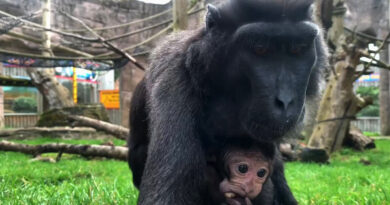Near Threatened White Rhino Born In England Brought In Swiss Zoo To Provide Offspring Released From Quarantine
A male rhino listed as ‘near-threatened’ by IUCN that was born in England has been released from quarantine after he was recently brought to a zoo in Switzerland to help breed a new generation.
The male Rhino named Kimba was brought from the Schwerin Zoo in Germany to help produce new offspring and continue the species’ line, and he has now been set free to explore the outdoor enclosures of the Lewa savannah at the Zurich Zoon in Switzerland after a 10 day quarantine.
The video shows the rhino walking around his new home looking for smells and also scent marking the territory.
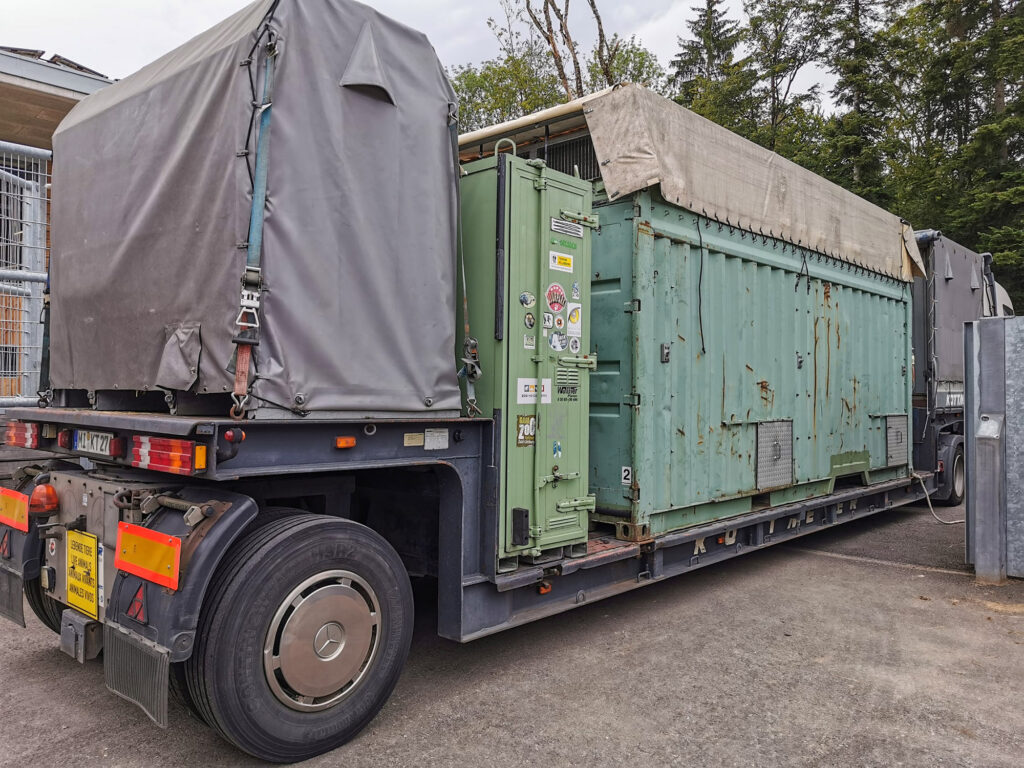
White rhinoceros (Ceratotherium simum) Kimba belongs to the southern white rhinoceros subspecies which is listed as ‘near-threatened’ by IUCN’s (International Union for Conservation of Nature) Red List of Threatened Species, whilst the northern rhinoceros subspecies is considered extinct in nature.
The 12-year-old bull, who has not fathered offspring yet, was born in the Knowsley Safari Park in London and seemed happy to meet the female rhinos Tanda and her daughters Teshi, Talatini and Ushindi on 18th August 2021.
Along with his female companions from the enclosure, zoo authorities hoped that Kimba will be able to help them secure the species longevity by providing offspring as part of the EAZA Ex-situ Programme (EEP), formerly known as European Endangered Species Programme.
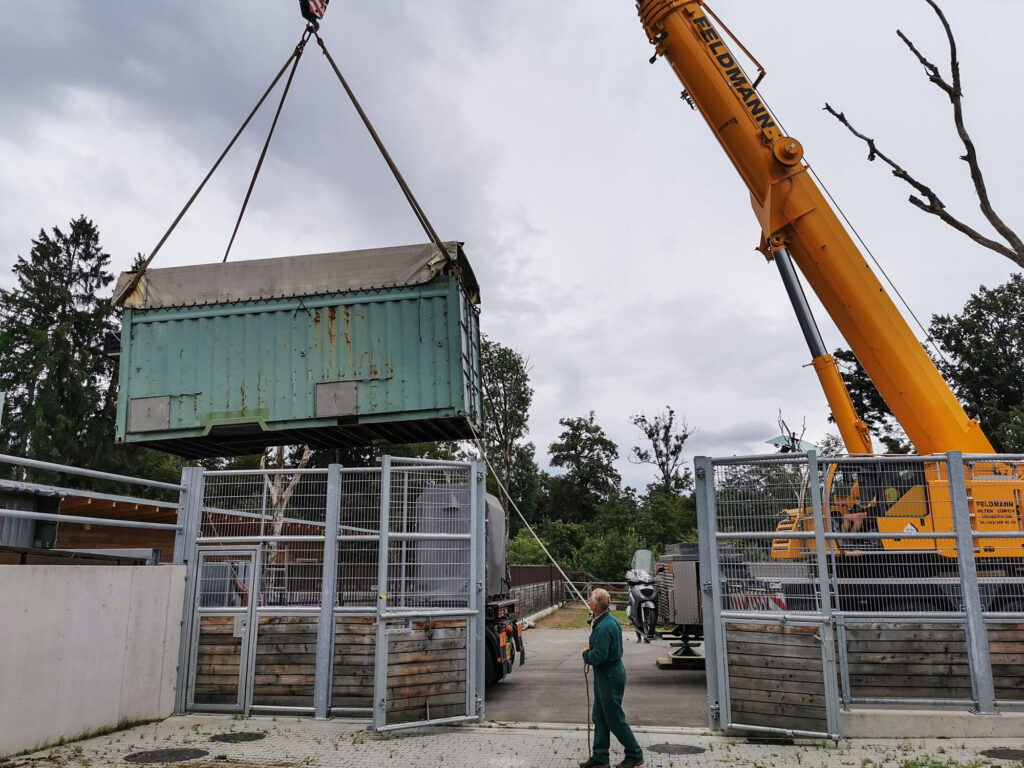
The aim of this programme is to establish and maintain a healthy and stable population of white rhinos in European zoos, which were almost exterminated by humans at the beginning of the 20th century as only around 20-50 individuals have survived in South Africa.
Thanks to intensive protection efforts and various translocations, the population was able to recover to around 21,000 animals by 2012, but has since then declined to around 18,000 individuals due to an increase in poaching.
According to the Zurich Zoo, the remaining white rhino individuals can be currently found in South Africa, Namibia, Botswana, Zimbabwe, Eswatini (formerly Swaziland), Kenya, Zambia and Uganda.
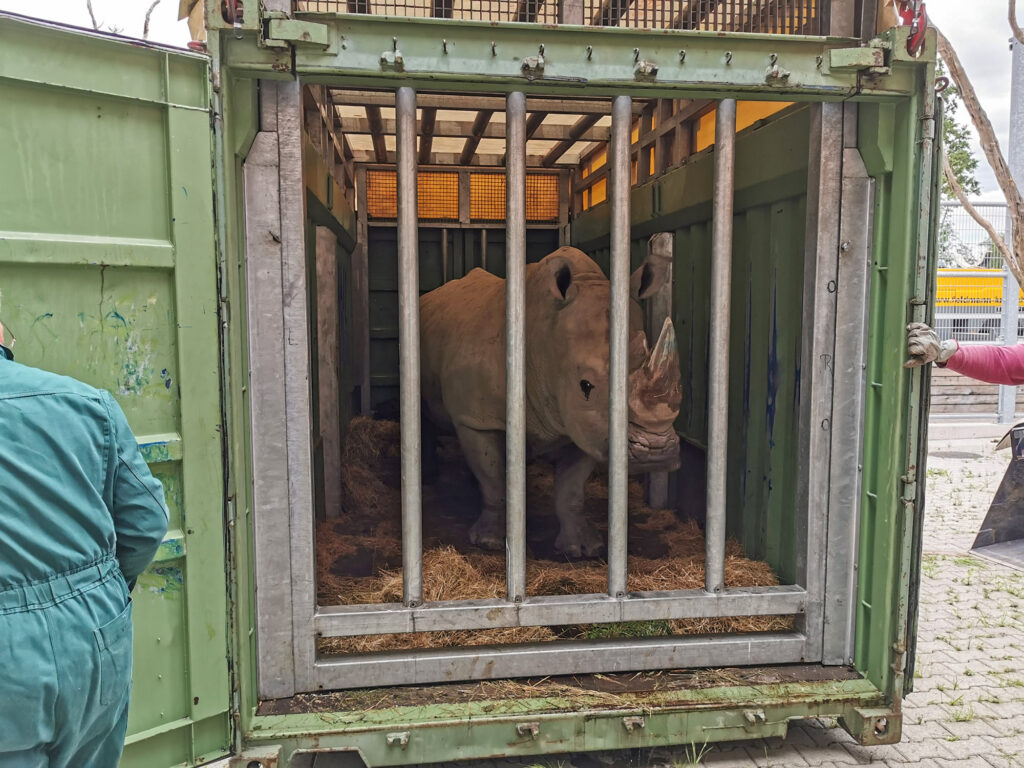
Of the five extant rhino species (Indian, Javan, Sumatran, white and black) only the latter two can be found in Africa, while the others inhabit the Asian continent.
Compared to the leaf-eating black rhinos, the white ones prefer to eat grass which limits their range of distribution to grasslands and savannahs.
While male white rhinos are more loners and prefer to remain in their comfort zone, while females tend to be more social and raise their young ones in groups of up to 14 animals.
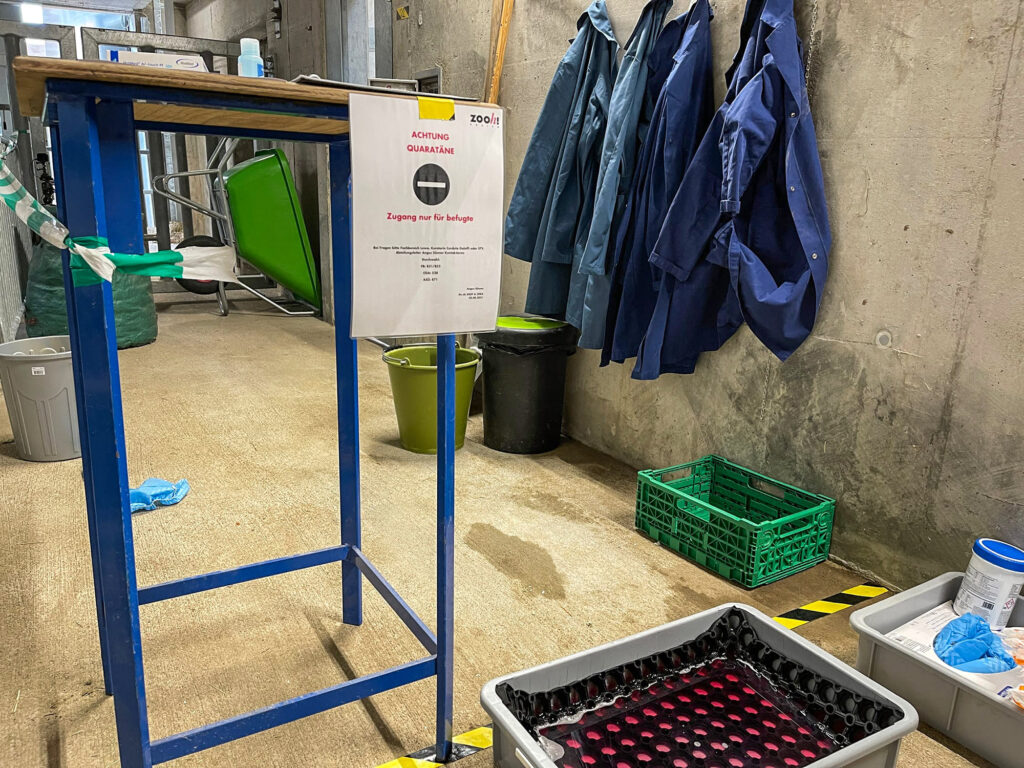
The subspecies returned to the Zurich Zoo after a long absence when the Lewa Savannah was built.
Young female Ushindi was the first white rhinoceros to be born in the zoo, after her mother Tanda was sent to Switzerland from the Ramat Gan Zoo in May 2020.

